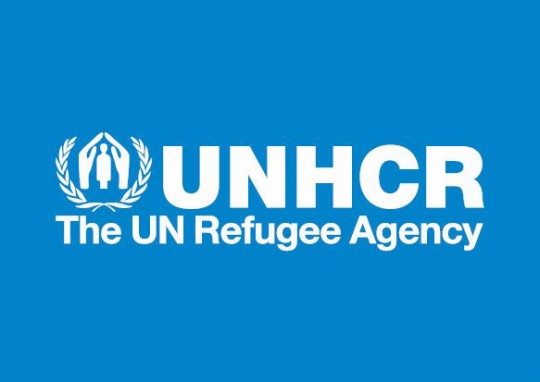UN refugee agency concerned over treatment of asylum-seekers in Ukraine.
UN refugee agency concerned over treatment of asylum-seekers in Ukraine
1 February 2012 – The United Nations refugee agency has voiced concern over the plight of asylum-seekers, including some minors, held in two detention centres in Ukraine, where more than 100 people are reportedly challenging their detention or have complained that they were denied the right to apply for asylum.
The UN High Commissioner for Refugees (UNHCR) said in a press release issued yesterday that some of those held in detention centres in the Volyn and Chernigiv regions of Ukraine were sentenced to one-year terms in detention for attempting to cross international borders without proper documents.
Some have claimed to be children or unaccompanied minors from Somalia who, according to UNHCR, should be accorded special attention under international and Ukrainian regulations, said the statement from the office of the UNHCR representative for Belarus, Moldova and Ukraine.
UNHCR has not been able to verify all the allegations and it remains unclear why so many people who claim to be minors would be treated as adults by the Ukrainian authorities.
“Their situation remains problematic even after several visits of UNHCR staff and NGO [non-governmental organization] lawyers and Government officials,” said the UNHCR statement. “To obtain clarity more visits and interviews are scheduled for the coming weeks,” it added.
According to information available to UNHCR, there are also several Afghan families with children detained in Volyn.
UNHCR and the State Migration Service staff visited the detention centre in Volyn jointly on 21 January to meet with the detainees and agreed on a number of steps to redress the situation.
Over the past week, 28 people have submitted applications for asylum to officials in the detention centre in the Volyn. UNHCR has been assured that the applications are being processed.
“UNHCR remains hopeful that the agreements reached will be fulfilled and that all necessary steps will be taken by the responsible authorities to defuse the tense situation in accordance with national law and the international obligations Ukraine assumed,” said the agency’s statement.
The agency, however, said it was concerned over reports received on Monday that riot police had been sent to the detention centre in Volyn.
###
About Office of the United Nations High Commissioner for Human Rights (OHCHR)
Who we are
The Office of the United Nations High Commissioner for Human Rights (OHCHR) represents the world’s commitment to universal ideals of human dignity. We have a unique mandate from the international community to promote and protect all human rights.
Leadership
The High Commissioner for Human Rights is the principal human rights official of the United Nations. The High Commissioner heads OHCHR and spearheads the United Nations’ human rights efforts. We offer leadership, work objectively, educate and take action to empower individuals and assist States in upholding human rights. We are a part of the United Nations Secretariat with our headquarters in Geneva.
The Office’s priorities are set out in two key strategic documents: the OHCHR Plan of Action and its Strategic Management Plan 2010-2011. These priorities include greater country engagement, working closely with our partners at the country and local levels, in order to ensure that international human rights standards are implemented on the ground; a stronger leadership role for the High Commissioner; and closer partnerships with civil society and United Nations agencies.
United Nations human rights system
We also support the work of the United Nations human rights mechanisms, such as the Human Rights Council and the core treaty bodies set up for monitoring State Parties’ compliance with international human rights treaties, promote the right to development, coordinate United Nations human rights education and public information activities, and strengthens human rights across the United Nations system. We work to ensure the enforcement of universally recognized human rights norms, including through promoting both the universal ratification and implementation of the major human rights treaties and respect for the rule of law.
Our structure
We have an office at United Nations headquarters in New York and offices in numerous countries and regions. In addition to the Executive Office of the High Commissioner and a number of units that report to the Deputy High Commissioner, OHCHR has two major divisions and four branches.
To implement our comprehensive mandate, we employ more than 850 staff (last update in April 2007), based in Geneva and New York and in 11 country offices and seven regional offices around the world, including a workforce of some 240 international human rights officers serving in UN peace missions. We are funded from the United Nations regular budget and from voluntary contributions from Member States, intergovernmental organizations, foundations and individuals.
###
> United Nations (UN).
 The United Nations was established on 24 October 1945 by 51 countries committed to preserving peace through international cooperation and collective security. Today, nearly every nation in the world belongs to the UN: membership totals 192 countries.
The United Nations was established on 24 October 1945 by 51 countries committed to preserving peace through international cooperation and collective security. Today, nearly every nation in the world belongs to the UN: membership totals 192 countries.
When States become Members of the United Nations, they agree to accept the obligations of the UN Charter, an international treaty that sets out basic principles of international relations. According to the Charter, the UN has four purposes:
- to maintain international peace and security;
- to develop friendly relations among nations;
- to cooperate in solving international problems and in promoting respect for human rights;
- and to be a centre for harmonizing the actions of nations.
###
* The above story is adapted from materials provided by United Nations (UN)
** More information at United Nations (UN)





















